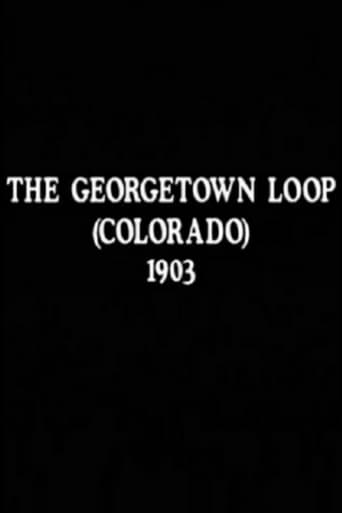He_who_lurks
This film was shot by G. W. "Billy" Blitzer, and was (obviously) taken on the end of the train. We get views of the surrounding scenery as the train winds around the loop. Yeah, that's it. Interesting footage, decent film. If you look closely you can see a figure of a man leaning against a telephone pole as the train winds along. Another reviewer has pointed out that the film was done in 1901, not 1903, which is the copyright date. What's good about these actualities is that they depict moments from long ago. Sometimes (well, a lot of the time) we see the passengers out of the end car waving their handkerchiefs at someone (maybe the cameraman, Blitzer?) If you like this than you'll probably also like the Lumiere Brothers' films, so feel free to look at my reviews for their shorts as well.
kekseksa
This film was in fact shot in 1901 a part of a whole series of films taken on the Union Pacific Railroad in July of that year by Billy Bitzer. Just a couple of years after William Henry Jackson's famous 1899 photograph of the loop ("The Far-Famed Georgetown Loop"). The train is, I assume, the Overland Limited, which featurs by name in several of the other films. The rote was a particularly dramatic one and it would be good to also have the films taken as it traversed "The Fish Cut" in Wyoming, crossed the Dale Creek Fill and went through the Sherman Hill tunnel through the Rockies. Mutoscope was more careless about copyrighting its material than its rival Edison and 1903 is in fact the copyright date. It does also appear correctly in IMDb under the 1901 date.
jtyroler
If you consider that this was done the same year as "The Great Train Robbery" and the reports of people ducking so they wouldn't be shot, I can imagine that quite a few people thought the train might fall off the track at times. There are times where the train is either traveling across a very high bridge or it appears that there isn't much, except for a huge drop-off, on the left side of the track.It's interesting the number of people waving their handkerchiefs out the window of some of the passenger cars. I don't know if this was still an issue in 1903 or not, but I thought early train travel had the added danger of getting burned by hot ashes or embers (maybe it depended on if the engine was burning coal or wood). I don't know how many scenic rail lines there are still in Colorado over a century later, it might be interesting to see how that area has changed. Well, as long as you're not afraid of heights...
Snow Leopard
The Georgetown Loop in Colorado was apparently a favored site for some of cinema's early pioneers, and you can see why - the scenery is both interesting and attractive. This 1903 feature does a good job both in picking up a lot of sights worth seeing, and in conveying the motion of the train that is carrying the camera.The main point of the feature is just the scenery, but some of the vistas that come into view could hardly have been better chosen if they had been carefully set up as still photos. There are also a couple of amusing shots when the train rounds a bend, and some of the cars come into the camera's field of view. While it's certainly nothing spectacular, it's a pleasant feature, and a worthwhile look at some sights from over 100 years ago.
